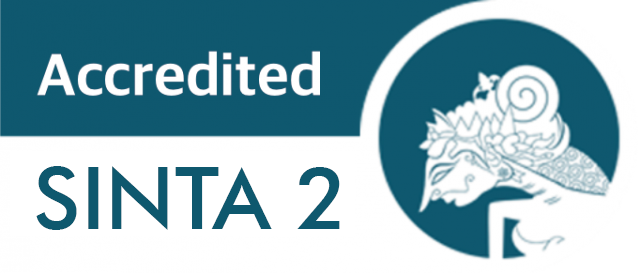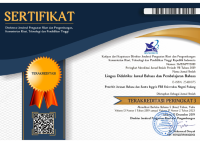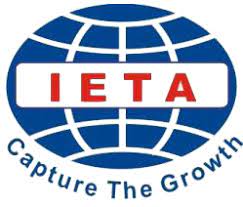Encountering Prospective Teachers’ and Lecturers’ Lesson Study for Learning Community (LSLC) Experience in Microteaching Class
 ), Harwati Hashim(2), Yenni Rozimela(3), Aryuliva Adnan(4),
), Harwati Hashim(2), Yenni Rozimela(3), Aryuliva Adnan(4), (1) Universitas Negeri Padang
(2) Universitas Kebangsaan Malaysia
(3) Universitas Negeri Padang
(4) Universitas Negeri Padang
 Corresponding Author
Corresponding Author
Copyright (c) 2021 Lingua Didaktika: Jurnal Bahasa dan Pembelajaran Bahasa
DOI : https://doi.org/10.24036/ld.v15i2.115230
Full Text:
 Language : en
Language : en
Abstract
Considering the effectiveness of Lesson Study as a continue teacher development, this study was conducted to explore prospective teachers’ and lecturers’ experience in implementing Lesson Study in Microteaching class. Quantitative research approach was employed where a total of 49 prospective teachers and 2 Microteaching lecturers at English Department of Universitas Negeri Padang were involved as the participants. The data were gathered through questionnaires with 1-5 Likert scales consisting of four sessions. The results indicate that prospective teachers and lecturers have positive experience in implementing lesson study for learning community with the mean score 3.75 and 4.08 out of 5. It is supported by the Mann Whitney U test where the value with 1-tailed (.358) was bigger than level of probability α (0.05). They perceived that LSLC promotes to improve the ability of collaboration between members of the learning community and facilitates the process of teaching and learning in Microteaching classes in preparing teaching material and teaching strategies for teaching in microteaching class. Therefore, it is suggested that LSLC must be implemented continuously to improve teachers’ pedagogical competency and collaboration skills.
Keywords
References
Albhnsawy, A. A., & Aliweh, A. M. (2016). Enhancing Student Teachers' Teaching Skills through a Blended Learning Approach. International Journal of Higher Education, 5(3), 131-13
Arsal, Z. (2015). The Effect of Microteaching on the Crtical Thinking Disposition of the Pre-service Teahers. Australian Journal of Teacher Education, 40(3), 140-153.
Celik, F. (2019). The Effect of Microteaching Practices on the Professional Self Determination Belief on Teacher Candidates of University Education in Turkey. Journal of Education Issues, 5, 22- 41.
Dania, A., Voutsina, I., & Moumouri, A. (2013). The Application of the Lesson Study model on the teaching practice of physical education university students. Proccedings of the International Scientific Conference eRA-8. Athens, Greece.
Espinosa, A., Datukan, J., & Butron, B. T. (2018). Perceptions of pre-service chemistry teachers on the utilization of productive lesson study as a framework for teaching and learning. International Journal for the Scholarship of Teaching and Learning, 12(1).
Fernandez, C. (2002). Learning from Japanese approaches to professional development: The case of lesson study. Journal of Teacher Education, 53(5), 393-405.
GÖDEK, Y. (2016). Science teacher trainees’ microteaching experiences: A focus group study. Educational Research and Reviews, 11(16), 1473-1493.
Kaymakamoğlu, S. E. (2019). In search of developing practical knowledge in pre-service EFL teachers: a proposed model. Journal of Language and Linguistic Studies, 15(3), 1000-1010.
Kelleci, O., Kulaksiz, T., & Pala, F. K. (2018). The Effect of Social Network-Supported Microlearning on Teachers' Self-Efficacy and Teaching Skills. World Journal on Educational Technology: Current Issues, v10 n2 p, 10(2), 115-129.
Lewis, C., & Tsuchida, I. (1998). A lesson is like a swiftly flowing river: Research lessons and the improvement of Japanese education. American Educator, 50(52), 14-17.
Lieberman, A., & London., D. W. (2003). Hand Book of Management. in B. Davis, Sustaining the Professional Development of Teachers: Learning in Networks. London: Longman.
Lin, G.-Y. (2016). Effects That Facebook-Based Online Peer Assessment with Micro-Teaching Videos Can Have on Attitudes toward Peer Assessment and Perceived Learning from Peer Assessment. EURASIA Journal of Mathematics, Science & Technology Education, 12(9), 2295-2307.
Lindell, M. A. (2013). The Effects of Microteaching on Pre-Service Teachers' Knowledge and Implementation of the Concept Mastery Routine. ProQuest LLC. 789 East Eisenhower Parkway, P.O. Box 1346, Ann Arbor, MI 48106. Tel: 800-521-0600; Web site: http://www.proquest.com/en-US/products/dissertations/individuals.shtm. 15
Ogegho, A. A., Gaigher, E., & Salagaram, T. (2019). Benefits and challenges of lesson study: A case of teaching Physical Sciences in South Africa. South African Journal of Education, 3(1), 1-9.
Ono, Y., & Ferreira, J. (2010). A case study of continuing teacher professional development through lesson study in South Africa. South African Journal of Education, 30(1), 59-74.
Pang, M., & Ling, L. (2012). Learning study: Helping teachers to use theory, develop professionally, and produce new knowledge to be shared. Instructional Science, 40(3), 589-606.
Shaw, D. (2017). Accomplished Teaching: Using Video Redorded Microteaching-discourse to Build Candidate Teaching Competencies. Journal of Interactive Learning Research, 28(2), 161- 180.
Stepanek, J., Appel, G., Leong, M., Turner Mangan, M., & Mitchell, M. (2007). Leading Lesson Study. A practical guide for teachers and facilitators. California.
Tiarina, Y., & Rozimela, Y. (2017). Reflection on Action: The use of Reflective Journal Plus Video Recording. Advances in Social Science, Education and Humanities Research (ASSEHR), Fifth International Seminar on English Language and Teaching (ISELT 2017), 228-234.
Toman, U., Cimer, S. O., & Cimer, A. (2014). Analysis of pre-Service Science Teachers’ View about the Methods which Develop Reflective Thinking. International Journal on New Trends in Education and Their Implication, October 2014 Vol. 5 ISSN 4, 162-173.
Utami, I. W., Mashuri, & Nafi’ah, U. (2016). A Model of Microteaching Lesson Study Implementation in the Prospective History Teacher Education. Journal of Education and Practice, 7(27), 10-14.
Uzun, N. (2012). A Sample of Microteaching in Environmental Education and its Effect on Preservice Teachers’ Presenting Effective Lessons. Asia PacificForum on Science Learning and Teaching, 13(9).
Wangchuk, S. (2019). Effect on Microteaching in the Pre-service Teacher's Teaching Competence: A case in Bhutan. International Journal of Education and Development Using Information and Communication.
Wessels, H. (2018). Noticing in Pre-service Teacher Education: Research Lessons as a Context for Reflection on Learners’ Mathematical Reasoning and Sense-Making. In G. Kaiser et al. (Eds.), Invited Lectures from the 13th International Congress.
Yan, C., & He, C. (2017). Pair Microteaching: An Unrealistic Pedagogy in Pre-Service Methodology Courses? Journal of Education for Teaching: International Research and Pedagogy, 43(2), 206-218
 Article Metrics
Article Metrics
 Abstract Views : 349 times
Abstract Views : 349 times
 PDF Downloaded : 100 times
PDF Downloaded : 100 times
Refbacks
- There are currently no refbacks.
Copyright (c) 2021 Lingua Didaktika: Jurnal Bahasa dan Pembelajaran Bahasa

This work is licensed under a Creative Commons Attribution-NonCommercial 4.0 International License.









